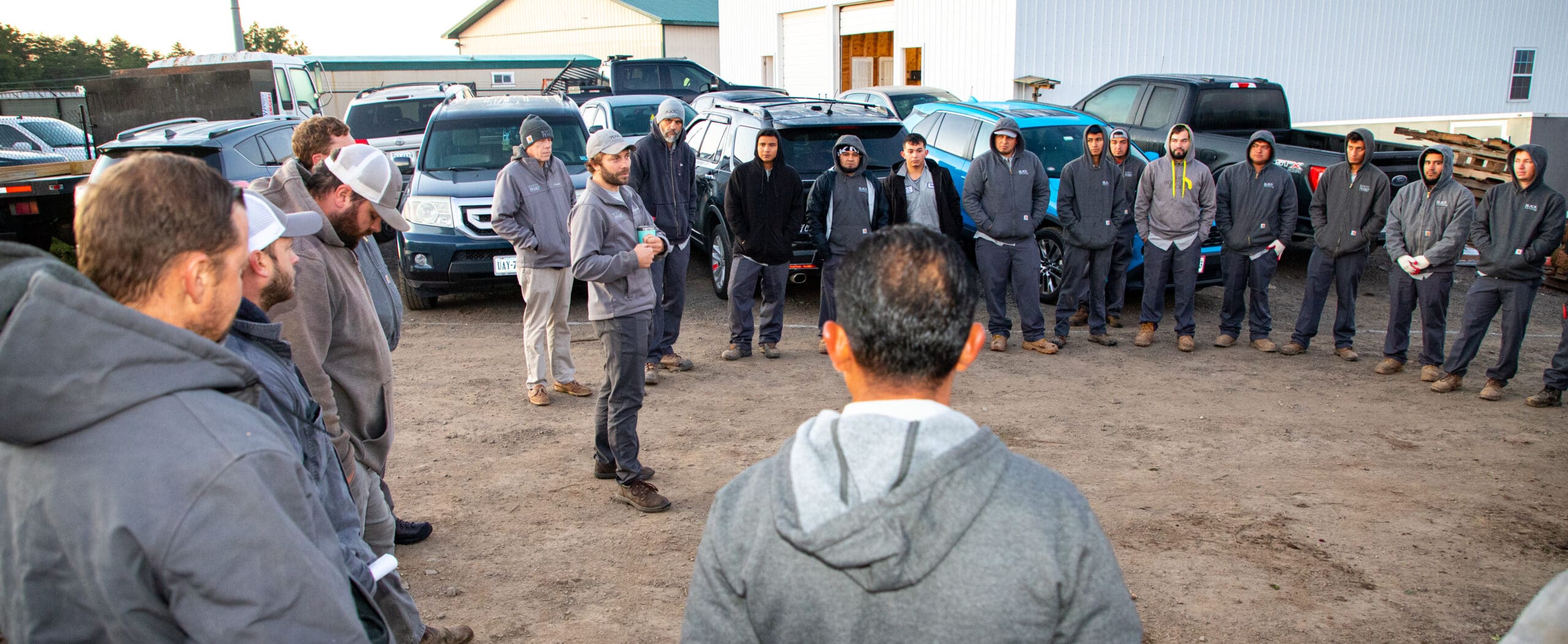
Training is a necessary aspect of the lawn and landscape business. It also does not stop with new hires after their onboarding process.
“Routine training is super important,” says Justin Gamester, president of Piscataqua Landscaping & Tree Service, based in Eliot, Maine. “Training is not a one-day thing. Teaching your people to have the customer experience knowledge, have the horticultural knowledge, know how to cut a lawn, know how to plant a tree, how to do a patio, those are things that you don’t do once. The training is constant.”
Gamester says if you don’t bring up these topics regularly, it gets lost. Routine training also becomes more critical as your business grows across branch locations.
However, it can be challenging at times to get your team to buy in and stay engaged during your routine trainings.
Partner with Vendors
Jay Rotonnelli, vice president of business development for Piscataqua, encourages relying on your vendors and manufacturers to help with training.
“When you have someone else come in, it changes it up, and they’re interested,” Gamester says. “It’s like, ‘Oh, we’ve never heard from this person before, wow that was fantastic!’”
Patrick Murray, managing partner of Local Roots Landscaping, based in Pittsburgh, Pennsylvania, says they also invite vendors and industry partners to provide training at their facilities.
These subject matter experts can often provide a fresh perspective on topics and insights into their specific products.
Attend Educational Events
Gamester says there are tried and true best horticultural practices, but if you aren’t staying plugged into the industry, you might miss out on new practices.
“I learn something new every day and I’ve been doing this for quite a while,” Gamester says.
Murray encourages taking your team members to industry events as well.
“We are very encouraging of our team to be involved in outside organizations to capture ideas, and network with others to ensure that we’re on the cutting edge,” says Bob Grover, owner of Pacific Landscape Management, based in Hillsboro, Oregon. “We are continually looking for new technologies and strategies that we can evaluate and employ. Part of our culture is to challenge our organization to rethink how we operate, and all are motivated to seek outside education and collaboration.”
Cover the Business Side
Another engagement tool you can use is taking the time to educate your team on the business side of landscaping and lawn care. Outerlands, based in Mashpee, Massachusetts, has started a voluntary landscape management 101 program.
Philip Hussey, CEO of Outerlands, says they’ve covered the unit economics of mowing so the team can understand the cost of their most basic service.
“We looked at budget versus actuals; if we estimate for an hour to mow, what does it look like?” Hussey says. “What is the financial impact if we take half an hour or if it takes you two hours and then walk through that whole exercise. It was like a math class with the team and put in their hourly rate, put in a burden, show what would happen with overtime, showed what the power pricing is, what we can charge. That was pretty eye-opening for the team to understand directly how being half an hour under all that mow job or an hour over correlates to bottom-line results.”
Highlighting this type of information can help your team better understand the importance of working safely and efficiently.



